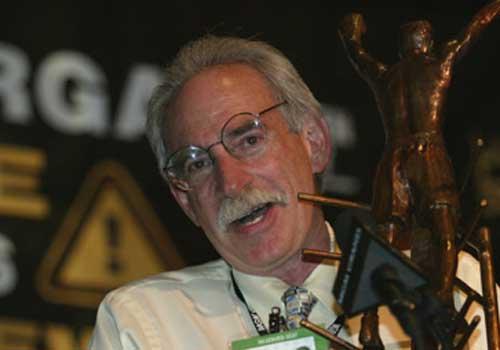
(“F*ckin’ with your cash is the only thing you kids seem to understand!” / Photo via FCFighter.com)
UFC Vice President of Regulatory Affairs Marc Ratner revealed to MMAJunkie yesterday that the promotion has instituted a pair of new rules to act as deterrents against their fighters using performance enhancing drugs. First, all fighters who compete at international events will now be tested for performance-enhancing drugs. The UFC has traditionally hired independent local facilities to test fighters during events outside of North America, but in the past, only a few fighters per card were usually selected for testing.
The shift in policy may have been spurred by a recent stretch in which the UFC’s independent drug screening busted fighters at three consecutive overseas cards. UFC 153 in Rio de Janeiro — where all fighters were screened for banned substances — resulted in suspensions for Stephan Bonnar (Drostanolone) and Dave Herman (marijuana). A month later, Thiago Silva tested positive for weed at UFC Macao. And finally, Rousimar Palhares and Joey Beltran failed drug tests following UFC on FX 6 in Australia.
The wave of botched tests is an embarrassing trend, and the UFC is clearly trying to get in front of it. Testing all their fighters at international events going forward will send a message to fighters who may have considered rolling the dice with banned substances, thinking that testing policies are a little more lax when formal athletic commissions aren’t running the show.
And if the greater risk of a suspension isn’t enough of a deterrent, Ratner also stated that from now on, the UFC will no longer pay out their end-of-night performance bonuses until drug testing results come back. The policy changes will be in place this weekend at UFC on FX 7: Belfort vs Bisping in Sao Paulo, Brazil. According to MMAJunkie, a new Brazilian commission appointed by the International Mixed Martial Arts Federation (IMMAF) will oversee the event.
In 2006, UFC on FX 7 headliner Vitor Belfort tested positive for 4-Hydroxytestosterone following his loss to Dan Henderson at PRIDE 32, and immediately invoked the tainted supplement defense.
